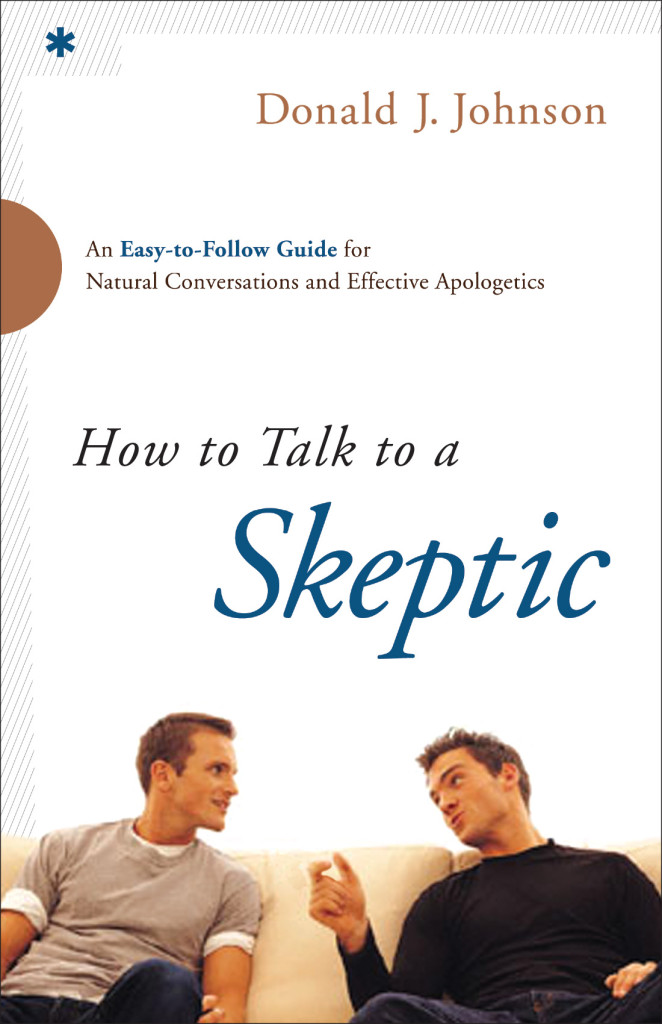Saturday, January 4, 2014
Book Review: How to Talk to a Skeptic
How to Talk to a Skeptic (2013) by Donald J. Johnson is an outstanding, tidy resource for any Christian looking to sharpen and/or develop sound evangelization skills. I give it 9.5 out of 10 stars.
This book is timely in an era of Christian history in which the ideas of God and Church and morality are regularly affronted in popular media, governments, and other channels. Johnson's 273-page book is a fast, articulate, and coherent plan for interacting with persons who express varying degrees of skepticism toward God and Christianity.
Each chapter is organized by different topics dealing with criticisms of Christianity such as the ideas of heaven and hell, relativism, Scripture, human experience, morality, and more. In each chapter, he presents both sides of the argument. What makes this book powerful, is that Johnson compares Christianity not as a religion versus those who are un-religious. Rather, he compares Christianity as a "worldview" and its capacity to make sense of reality versus competing worldviews. He makes the case that Christianity offers the single best worldview in light of reality.
Johnson's portrayal of the skeptic's view is consistently charitable, quoting at length various competing viewpoints. As president of Don Johnson Evangelistic Ministries, he also hosts The Don Johnson Show on radio from which he quotes a number of skeptical callers and is able to present common viewpoints and patterns in skeptical thought.
He covers several arguments from pop atheists like Sam Harris or Christopher Hitchens. Although these skeptics are known for specious or bombastic approaches toward religion, you will not find any reverse-halo bias in Johnson's book. Where these atheists raise valid concerns, Johnson acknowledges their point.
One aspect that especially makes How to Talk to a Skeptic valuable is that it sticks to a fundamental principle in analyzing reality. Johnson examines ideas in terms of right/wrong, true/false. At one point, he even cites one of my favorite C.S. Lewis quotes, one I have quoted more than once on this blog, when pertaining to human thought. In Lewis' The Screwtape Letters, a veteran devil trains an apprentice devil on how to get a human subject to deceive himself. The veteran devil speaks of getting subjects to avoid thinking in terms of "'true' and 'false'" and that "Jargon, not argument, is your best ally in keeping him from the Church." In sticking to the right/wrong, true/false principal, Johnson is able to make numerous, unshakable points and avoid fallacies of argument. This is the case both when he defends the Christian position and when he prompts the skeptic to analyze his own.
The book is also fraught with footnotes and resources for further information useful to the cause of a Christian seeking to defend and present the value of the faith to others. Although this book does not focus on Catholicism specifically, Johnson quotes regularly from Catholic sources, and the book itself is extremely useful for Catholics and all Christians.
Any skeptic should, at the very least, when faced with the presentation in this book, recognize that Christianity is not some "blind" faith in the absence of evidence. Rather, at one point, Johnson even notes, "Christianity welcomes an examination of the evidence. Indeed, it relies on it!"
Subscribe to:
Posts (Atom)

